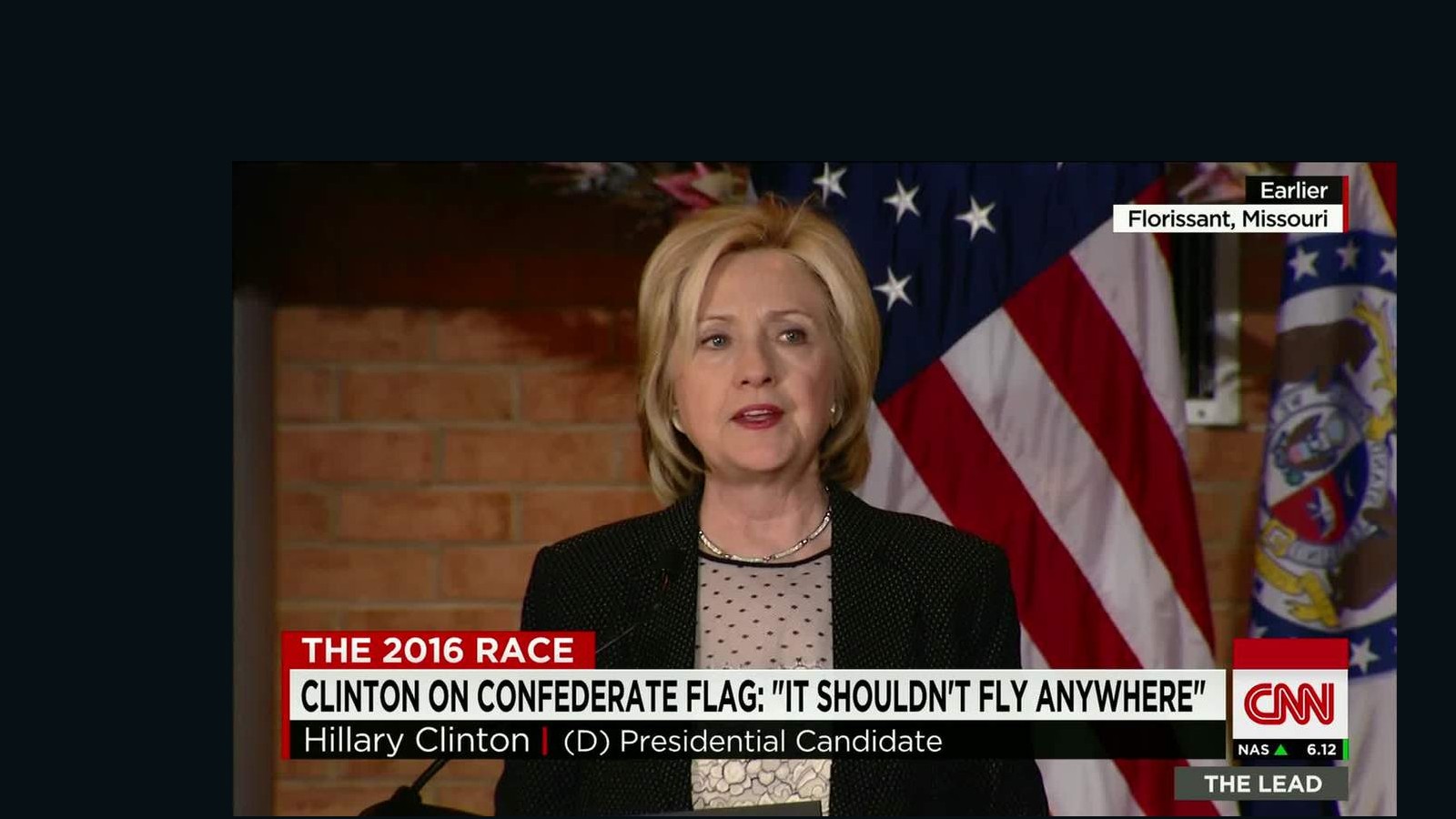Poll: Majority sees Confederate flag as Southern pride symbol, not racist
CNN/ORC poll: 57% see Confederate flag as Southern pride 01:40
Story highlights
- About 57% of Americans see the Confederate flag more as a symbol of Southern pride than as a symbol of racism, the poll says
- Opinions of the flag are sharply divided by race, and among whites, views are split by education
Washington (CNN)American public opinion on the Confederate flag remains about where it was 15 years ago, with most describing the flag as a symbol of Southern pride more than one of racism, according to a new CNN/ORC poll. And questions about how far to go to remove references to the Confederacy from public life prompt broad racial divides.
The
poll shows that 57% of Americans see the flag more as a symbol of
Southern pride than as a symbol of racism, about the same as in 2000
when 59% said they viewed it as a symbol of pride. Opinions of the flag
are sharply divided by race, and among whites, views are split by
education.
Among African-Americans, 72%
see the Confederate flag as a symbol of racism, just 25% of whites
agree. In the South, the racial divide is even broader. While 75% of
Southern whites describe the flag as a symbol of pride and 18% call it a
symbol of racism, those figures are almost exactly reversed among
Southern African-Americans, with just 11% seeing it as a sign of pride
and 75% viewing it as a symbol of racism.
Among
whites, there's a sharp divide by education, and those with more formal
education are less apt to see the flag as a symbol of pride. Among
whites with a college degree, 51% say it's a symbol of pride, 41% one of
racism. Among those whites who do not have a college degree, 73% say
it's a sign of Southern pride, 18% racism.

Hillary Clinton: Confederate flag 'shouldn't fly' 01:12
Efforts
to remove the flag or other references to the Confederacy from public
places have emerged in the weeks since nine African-American churchgoers
were killed by a white man who said he was trying to start a race war
in a Charleston church. But the poll shows the public is mixed on how
far those efforts should go, and nearly all flag-related questions
reveal broad racial divides.
A
majority favors removing the Confederate flag from government property
that isn't part of a museum: 55% support that while 43% are opposed. And
half support private companies choosing not to sell or manufacture
items featuring the Confederate flag: 50% are in favor, 47% opposed.
But
most oppose other efforts, including redesigning state flags that
feature Confederate emblems or symbols to remove references to the
Confederacy (57% oppose that), renaming streets and highways named after
Confederate leaders (68% oppose that) and removing tributes to those
who fought for the Confederacy from public places (71% oppose that).
Among
African-Americans, however, most favor removing flags from government
property (73%), private companies stopping the sale or manufacture of
products featuring the flag (65%) and redesigning state flags that
feature Confederate references to remove them (59%).
And
although there aren't significant age gaps in the poll overall on
questions about the flag, younger African-Americans are more likely to
favor some proposals than older ones.
African-Americans
age 54 or younger are more likely than older African-Americans to
support removing Confederate flags from government property (80% among
those age 54 or younger, 63% among those age 55 or older); private
companies choosing not to sell or manufacture items featuring the flag
(71% among younger African-Americans vs. 54% among older ones); and
redesigning state flags to remove references to the Confederacy (64%
favor that among African-Americans age 54 or younger compared with 54%
among older ones).
Among whites
overall, not a single one of the five tested proposals has majority
support. But here, too, an education divide emerges, with whites holding
college degrees more apt than those without degrees to support removing
confederate flags from government property (68% among those whites with
degrees, 42% among those without); private companies discontinuing sale
or manufacture of items featuring the flag (59% vs. 44%); and
redesigning state flags to remove references to the Confederacy (49% vs.
28% among whites without college degrees).
Most
Americans, black and white, do agree that the shootings in Charleston
should be considered a hate crime: 92% of African-Americans and 86% of
whites say it should be called a hate crime.
But
there is less agreement on whether it was an act of terrorism. Overall,
41% say the shootings were terrorism. Most whites say it was not
terrorism (61%), while most African-Americans say it was (55%).
The
CNN/ORC poll was conducted June 26-28 among a random national sample of
1,017 adults. Additional interviews were conducted with
African-Americans and combined with those reached through the initial
sample of 1,017 for a total of 303 non-Hispanic black respondents. The
margin of sampling error for all adults is +/- 3 percentage points, for
results among blacks it is +/- 5.5 percentage points. Results among the
727 non-Hispanic whites reached in the initial sample have a margin of
sampling error of +/- 3.5 percentage points.

No comments:
Post a Comment